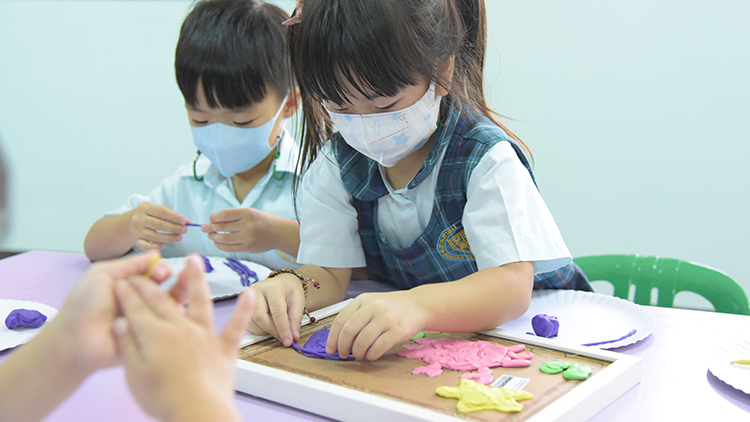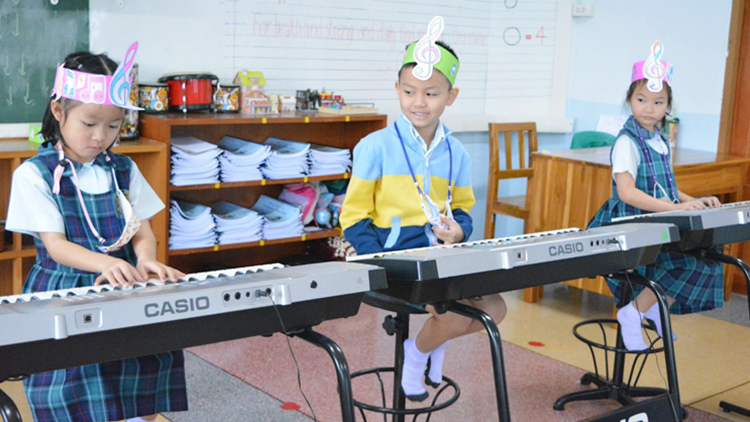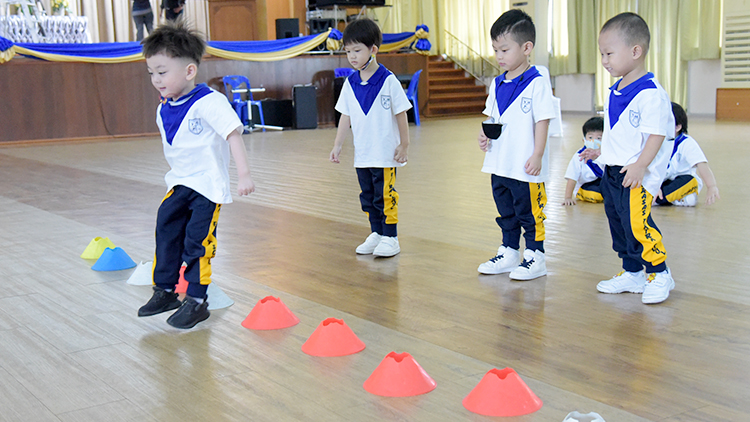
The Early Childhood curriculum of Sarasas Ektra school adheres to the principles of the Early Childhood Education Curriculum BE 2560 (AD 2017) of the Ministry of Education together with management that is a distinctive feature of the school with a dual languages format (Bilingual) focused on learning English along with Thai.
Early Childhood education at Sarasas Ektra is divided into four levels of education: Nursery (NC.), Kindergarten 1 (KG.1), Kindergarten 2 (KG.2) and Kindergarten 3 (KG.3). Its subject matter includes the important experiences and topics that should be learned to promote development in all 4 areas: Physical, Emotional, Social and Intellectual. Topics include things about the child, people and places, surroundings, nature, and the child’s environment through a holistic integrated learning process based on project activities.
The project approach recognizes and incorporates individual differences and aptitudes through six main multiple intelligence (MI) learning activities – experiential, movement and rhythm, creative, outdoor, free choice, and educational games. It includes a wide range of co-curricular activities, including Yoga, PE, Music, Piano, Art, Science, Computer, Swimming, and Library to help children to have life skills and be able to act according to the philosophy of the sufficiency economy.
The children should be good, disciplined and happy through the practice of daily routines and various experience-enhancing activities that the school has organized, as well as building knowledge and cooperation between the school, parents, families, communities and all parties involved in Early Childhood Education with the aim of development of full potential in all areas.
Bilingual Course structure (Bilingual) in each year level
The usual course structure in Bilingual system instructional management is 50: 50
50% for Thai language courses and 50% For English language courses.
The ratio of learning and teaching Between English and Thai (EN:TH) of Sarasas Ektra School will determine from the availability and suitability in each level as the following details:
Pre-KG - KG 1 : (50 : 50)
Get to know and familiarize with the language in daily life and surroundings, such as colors, shapes, nature, and personal using things as well as organizing learning activities that promote the development of the students.
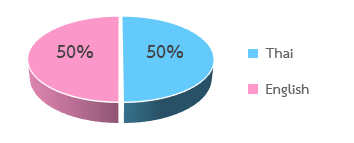
KG 2 - 3 : (85 : 15)
Increasing emphasis on the English language sector by focusing on a wider range of skills and learning processes as well as focus on language skills in daily life that students use to communicate more which will be benefit to further elementary school level

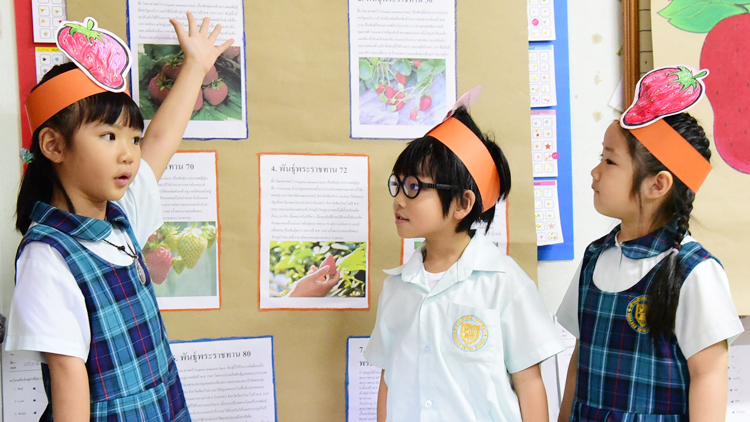
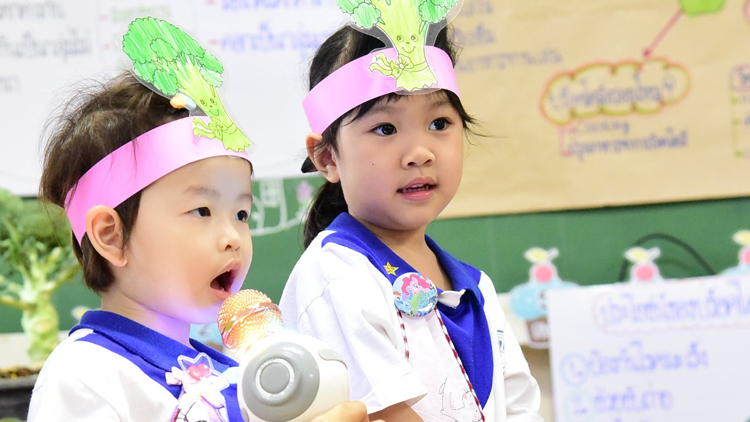
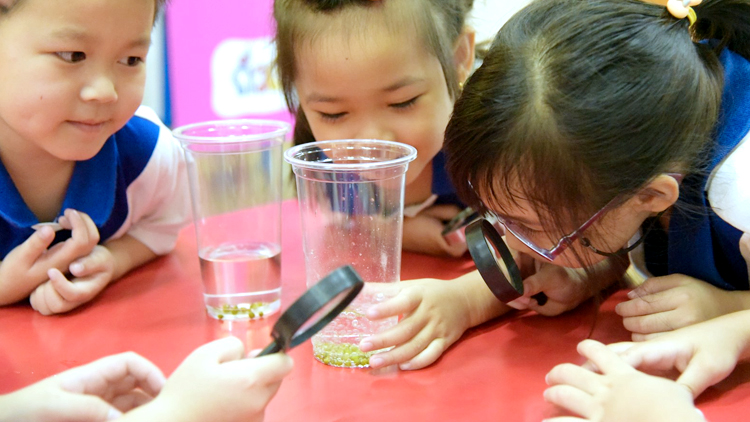
Here are some guidelines for organizing experiences according to the Early Childhood curriculum, which aims to provide an experience in the form of integrated learning skills, which are also consistent with the brain’s learning principles according to the theory of Multiple Intelligences (M.I.) by providing experiences that focus on the importance of the student-centered learning. There are 6 main activities which consist of movement and rhythm activities, creative activities, free activities, outdoor activities, educational games and extra experience activities. More details can be found below;
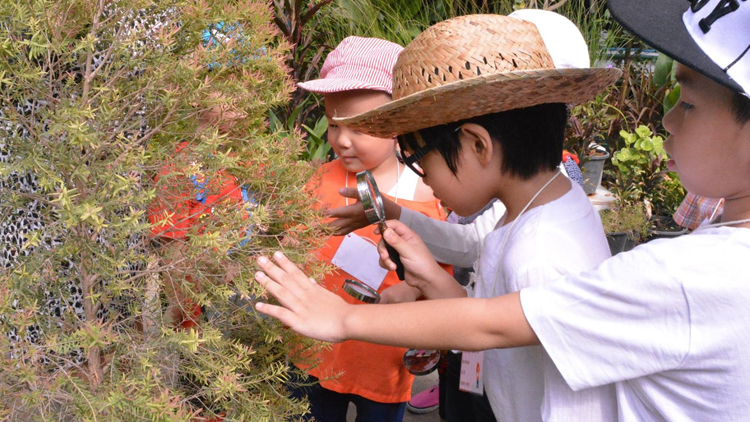
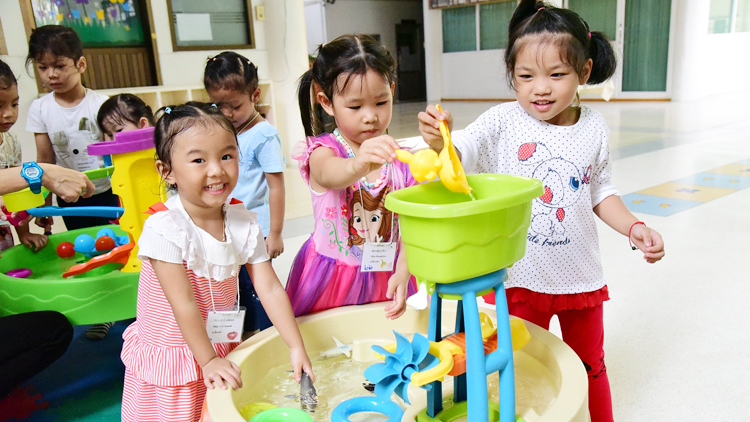
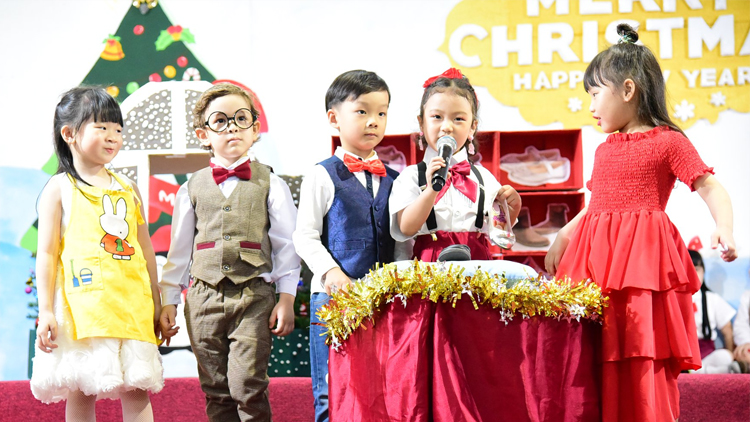
The school has adopted a ‘Positive School’ approach to help in supervising and promoting individual students. Teachers will monitor the behavior of students during various activities and daily routines. Behaviors will be recorded, information collected from individual journaling and conversations. These will include physical, emotional, social and intellectual behaviours. If any abnormality is found students’ development will be boosted by psychologists together with teachers and parents. This will allow students to release more of themselves, do what they enjoy and what they can do well to enhance effective learning and live happily with others.
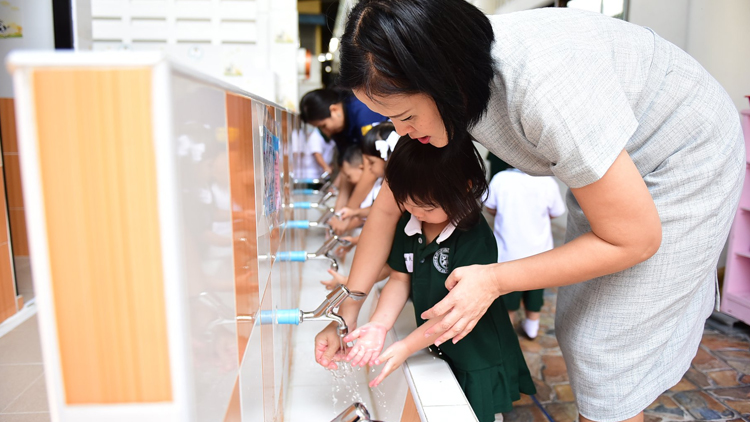
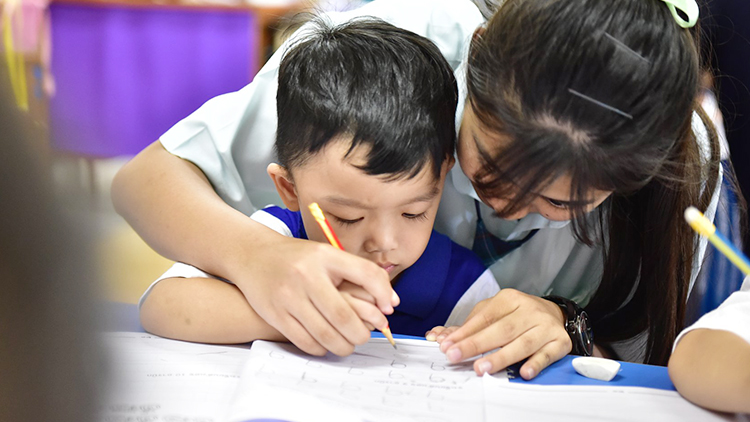
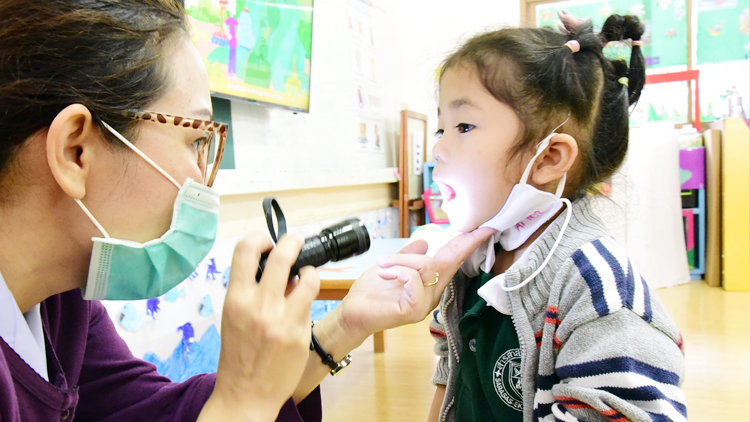
Guidelines of Intelligence development approach from the Multiple Intelligences theory (M.I.) of Professor Howard Garner (Dr. Howard Gardner) about the division of talents, attitudes or intelligence of the human beings, which can be up to 8 intelligences. Gardner believes that every human being has all the intelligences inside them, but it may just be hidden. Most societies accept humans with logical, computational, linguistic ability, especially foreign languages. Scientific competence is an intelligence above other people, but for Dr. Howard Gardner the intelligence of human being has 8 intelligences and one human might have more than one intelligence but will be different, however, if the intelligence that exists in each person is not stimulated in any way to promote the development, eventually that intelligence may disappear or show a weakness.
8 Intelligences consist as follows:
1. Visual-Spatial Intelligences
2. Linguistic Intelligences
3. Logical-Mathematical Intelligences
4. Bodily Kinesthetic Intelligences
5. Musical Intelligences
6. Interpersonal Intelligences
7. Intrapersonal Intelligences
8. Naturalist Intelligences
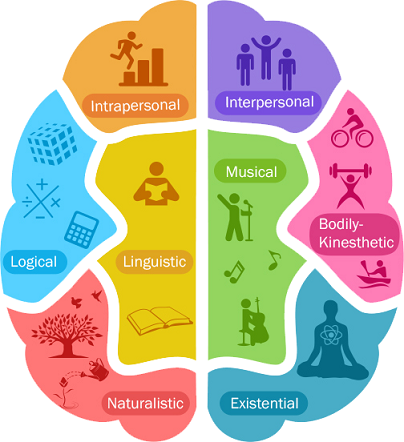
Based on the aforementioned theory, Sarasas Ektra School has applied this concept to organize developmental activities for students to provide students a wide variety of learning experiences to have an opportunity to learn, to try to practice, be able to use different skills to find aptitudes that will help grow the intelligence of each person to become more clear in the higher year levesl, but still does not emphasize or judge student’s intelligence in any particular area.
